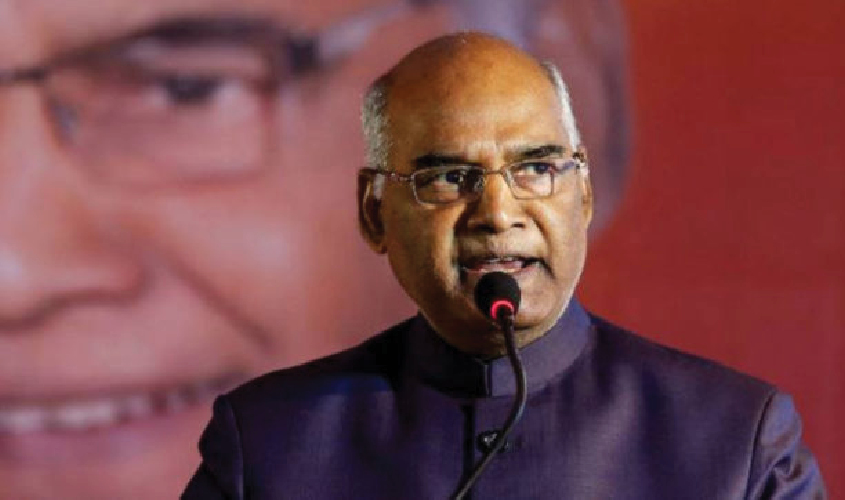President Ram Nath Kovind has shown by his courteous and people-friendly behaviour that the former Viceregal Palace of the British Raj is no longer an abode of privilege but the People’s House. His soft-spoken manner and inclusive rather than exclusive approach to politics and society fit perfectly with the “Zeitgeist” (spirit) of India, a land that is globally defined by its tradition of peace and non-violence. Unlike in the case of several families of prominent politicians, the family of the First Citizen of India has remained anchored to the proud tradition of honesty and simplicity established by the family of Prime Minister Lal Bahadur Shastri during the tragically brief period when he held that job, or that of Babu Rajendra Prasad, another Head of State who exemplified the traditions and virtues of our ancient civilisation
President Kalam was averse to the use of public funds for private purposes, even going to the length of paying for the travel and stay of relatives attending his swearing-in ceremony. Unlike some of his predecessors, who kept open house for friends and family at what is a taxpayer-funded official residence, Kalam booked visitors close to him in guesthouses whose expenses were paid for either by the guests themselves or by the President of India out of his own pocket. He was parsimonious in spending taxpayer rupees, and did away with religious celebrations that in the past were conducted in Rashtrapati Bhavan at public cost. During his five years in the highest office of the land, President Kalam never used public money to celebrate Christmas, Diwali or Eid, stating that such functions should be conducted in private and not public housing. President Kovind is following several of the wholesome precedents set by Kalam, including a refusal to celebrate religious functions of any kind within the precincts of Rashtrapati Bhavan. Hence there was no question of Diwali, Christmas or Eid being officially celebrated by the First Citizen, except in a private capacity. The grounds of the Presidential Palace contain a temple, a gurudwara and a mosque, while close at hand nestles a church. It is not generally known that the inclusivist and moderate President of India has on numerous occasions visited each of these houses of worship, often joining with the faithful in their devotion. President Kovind has followed the healthy and indeed necessary precedent of not discriminating between the houses of worship of different faiths, which is why not only the Hindu temple, but the Muslim mosque, the Sikh gurudwara and the Christian church have been honoured by his presence, of course in a private capacity, as religion is (or should be) entirely a private matter. The Sunday Guardian salutes President Ram Nath Kovind for his adherence to the principle that the state, its institutions and its high authorities, should not in any official way link themselves to the specific practices and festivals of particular faiths. In this, he is going by the precedent set by another People’s President, A.P.J. Abdul Kalam, who has fittingly had an important road in the national capital’s Lutyens Zone named after him.

